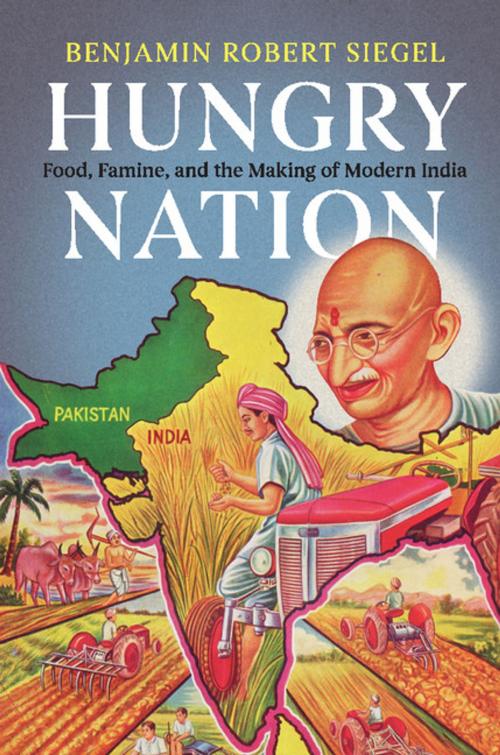| Author: | Benjamin Robert Siegel | ISBN: | 9781108579001 |
| Publisher: | Cambridge University Press | Publication: | April 30, 2018 |
| Imprint: | Cambridge University Press | Language: | English |
| Author: | Benjamin Robert Siegel |
| ISBN: | 9781108579001 |
| Publisher: | Cambridge University Press |
| Publication: | April 30, 2018 |
| Imprint: | Cambridge University Press |
| Language: | English |
This ambitious and engaging new account of independent India's struggle to overcome famine and malnutrition in the twentieth century traces Indian nation-building through the voices of politicians, planners, and citizens. Siegel explains the historical origins of contemporary India's hunger and malnutrition epidemic, showing how food and sustenance moved to the center of nationalist thought in the final years of colonial rule. Independent India's politicians made promises of sustenance and then qualified them by asking citizens to share the burden of feeding a new and hungry state. Foregrounding debates over land, markets, and new technologies, Hungry Nation interrogates how citizens and politicians contested the meanings of nation-building and citizenship through food, and how these contestations receded in the wake of the Green Revolution. Drawing upon meticulous archival research, this is the story of how Indians challenged meanings of welfare and citizenship across class, caste, region, and gender in a new nation-state.
This ambitious and engaging new account of independent India's struggle to overcome famine and malnutrition in the twentieth century traces Indian nation-building through the voices of politicians, planners, and citizens. Siegel explains the historical origins of contemporary India's hunger and malnutrition epidemic, showing how food and sustenance moved to the center of nationalist thought in the final years of colonial rule. Independent India's politicians made promises of sustenance and then qualified them by asking citizens to share the burden of feeding a new and hungry state. Foregrounding debates over land, markets, and new technologies, Hungry Nation interrogates how citizens and politicians contested the meanings of nation-building and citizenship through food, and how these contestations receded in the wake of the Green Revolution. Drawing upon meticulous archival research, this is the story of how Indians challenged meanings of welfare and citizenship across class, caste, region, and gender in a new nation-state.















